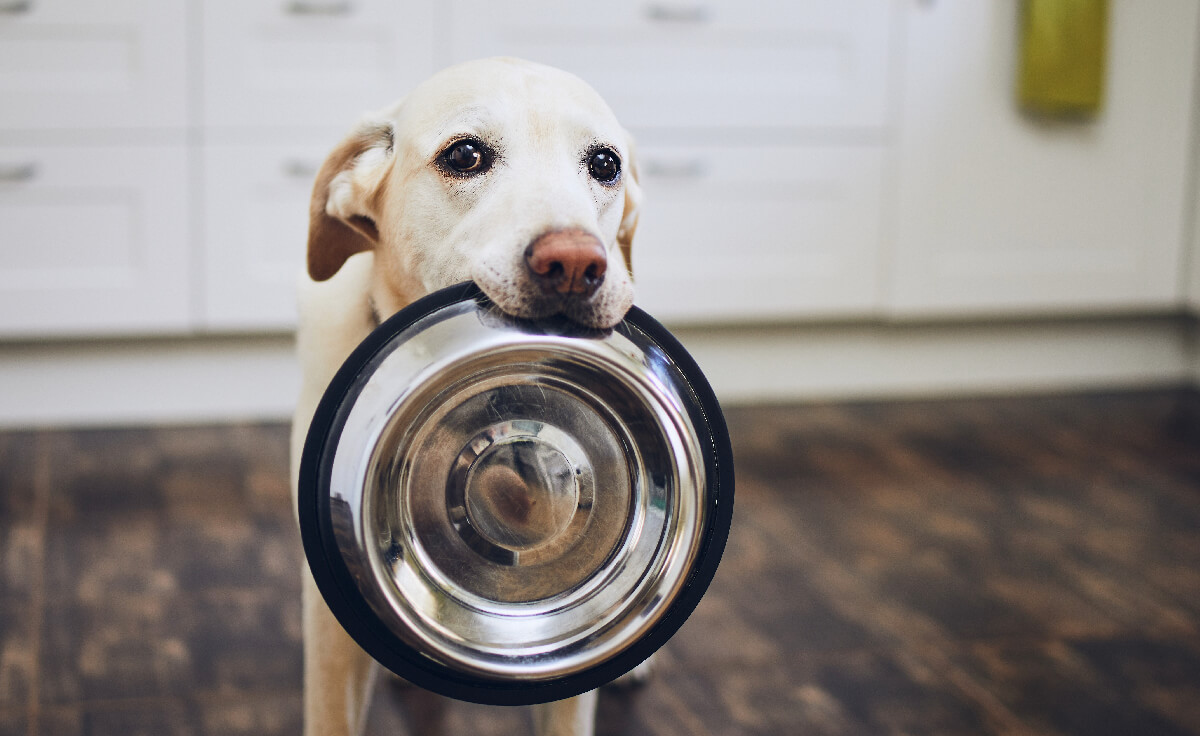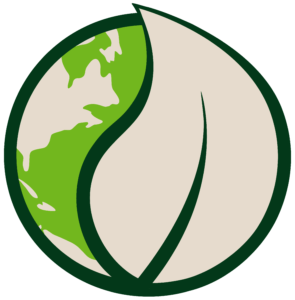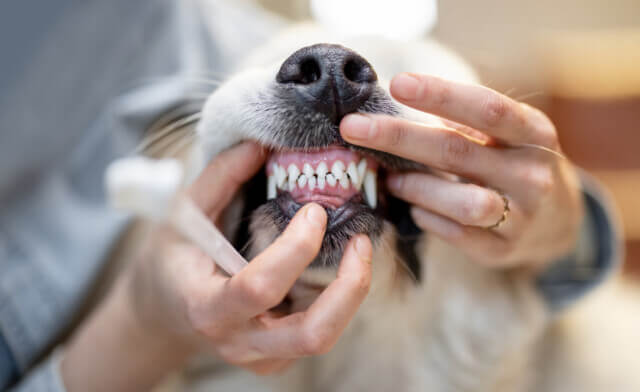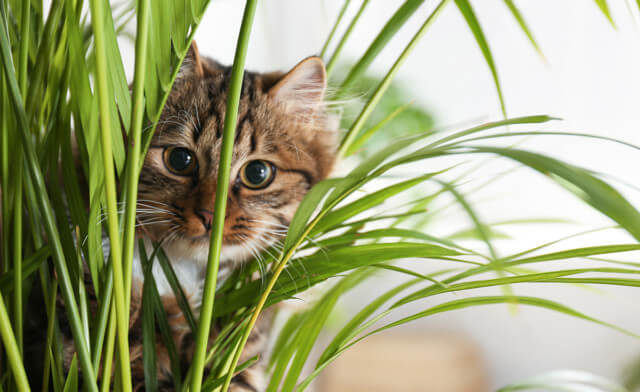Foods Toxic to Dogs and Foods Toxic to Cats
Do you know what human foods you shouldn’t give your pet? As a pet owner, it’s sometimes tempting to spoil your pets with a little treat off your plate. While, in general, this isn’t a bad thing so long as it doesn’t lead to overfeeding, take caution. You need to make sure you’re not giving them one of the common human foods they shouldn’t eat. There are some foods that are toxic to dogs and cats, causing serious harm or even fatality in some cases. Some of them can be surprising too. But don’t worry, we’re here to help. Read on for our guide to human foods that you shouldn’t feed to your pets.

The 7 Foods That Cause the Most Pet Fatalities
Studies on animal health found the most common foods behind global pet poisonings. There were several foods that are fine for us to eat but actually prove toxic to cats and dogs.
But many people don’t know the dangers that these foods pose to cats and dogs. They don’t realize they’re causing potential harm when giving these foods. It seems like a nice treat because they enjoy it too.
There’s also a high chance that pets get into these foods by accident and eat them. As a pet owner, you’ll likely already know that some pets seem to be on a mission to steal food.
The most common foods reported by pet owners when bringing their pets in for treatment were:
- Chocolate and chocolate-based products
- Allium genus plants (garlic, leeks, chives, etc.)
- Vitis vinifer fruits (grape, sultanas, raisins, etc.)
- Common sweetening substances called xylitol
- Ethanol (found in alcohol, unbaked bread, etc.)
This is only a list of the most common foods. The list will continue to grow as more cases get reported and more studies emerge. In most cases, veterinarians don’t know exactly why these foods are toxic. They only know the symptoms and illnesses they cause so you know what to look for.
Some items like chocolate have a long history of causing issues for cats and dogs. Fruits like grapes have only emerged as an issue in the last few years. Before that, they hadn’t come to light for their toxicity. Because some foods haven’t got an association with pet poisonings, it’s sometimes misdiagnosed.
In general, it’s more likely that a dog will eat poisonous foods because they have a tendency to eat anything. Cats, while definitely not always the case, have a layer of protection. They tend to be fussier over what they eat, being more picky eaters than dogs. But don’t let this make you complacent, you should keep an eye on your cats as much as your dogs.
Here is the list of these most common foods with more details about them. We’ll list the common symptoms to look for and how serious of an issue that can be if your pet eats them.
1. Chocolate and Caffeine
Cocoa-based products are they’re one of the most common foods behind pet poisonings. They can cause anything from a mild upset to the digestive system, to seizures and even death. Your pet could get into chocolate whenever you have it in the home. But, around the holiday season, with more chocolate around, there is a higher chance.
There are two compounds that are toxic to pets that chocolate contains. These are caffeine and theobromine. Both change cellular processes and stimulate the heart muscles and central nervous system. The more concentrated the cocoa levels, the worse it is. As there is more theobromine in dark chocolate, this makes it worse than white, for example. Only a small piece could be enough to make your cat or dog very unwell. But that doesn’t mean they should have white chocolate, no chocolate is safe. No amount of chocolate is safe, be that in large amounts or small amounts.
Caffeine and theobromine are in other products as well. Other items to keep an eye on are herbal supplements, garden mulch, caffeine tablets. It’s even found in some types of bait. You’ll likely start to see the first symptoms 2-4 hours after your cat or dog ingests the chocolate. These symptoms include drinking a lot, restlessness, vomiting, and incontinence. You might notice your pet is excitable, with a rapid heart rate and breathing. When a cat or dog eats chocolate, swift treatment is important. This increases the chance of getting the toxins out of their system before serious harm. This gives them the best chance of recovering. If you delay, the symptoms can get worse and recovery rates go down. They could seizure, go into a coma or die due to respiratory failure or abnormal rhythm in their heart.
2. Xylitol
The next most common cause of toxic foods for pets was the sweetener Xylitol. It’s used often in items like bread, baked goods, candy, and gum. It’s also found in dental products (both people and pets!) due to its antibacterial benefits. Here, dogs are more at risk of a severe, life threatening reaction. Xylitol stimulates their insulin hormone, causing very dangerous low blood sugar levels. It can also cause liver failure. You’d likely see symptoms within 30-60 minutes of ingestion but it could take up to 12 hours. Symptoms to watch for include vomiting and signs of low blood sugar. These are lethargy and an inability to control body movements (jerking, thrashing, etc.). They may even collapse or experience seizures.
3. Onions, Garlic, Leeks & Chives
The plant species Allium is toxic to both cats and dogs. These include common pantry staples like onions, garlic, leeks, and chives. This is because they all contain a compound called organosulfoxides. When your pet chews on one of these plants, this compound turns into a complex sulfur compound mix. This can start to cause your pet’s red blood cell structure to break down. Even a single piece of onion can cause serious changes to their blood.
In cats, the dangerous amount is 5g per kilogram of body weight. For dogs, this is 15-30g per kilogram. It doesn’t matter if the plants are raw or cooked. Some major people foods that cause poisoning include:
- Baked garlic
- Spring onions
- Onion soufflé
- Steamed dumplings
- Roasted onions
Alliums will hold onto their toxic compound even after drying or cooking. It’s vital to keep your pets away from any form of these plants to keep them safe. This should include removing them from any vegetable patches or indoor pot plants. These plants are not safe for dogs or cats to ingest, so never feed it to them on purpose. While some pets might not show any signs if the amount consumed was low, for some it could be fatal. It can take a day or even several days for symptoms to appear, depending on how much they ate. Common signs to look for include vomiting and diarrhea, loss of appetite, and pain in the abdomen. Some pets will develop anemia, weakness, high heart rate, and fast breathing. You might also notice their mucous membranes are pale and their urine turns brown or reddish.
4. Alcohol
Alcohol poisoning usually happens when a pet gets into some alcohol by accident. But, sloe berries, rotten apples, and uncooked yeast dough (for bread and pizza, etc.) can also cause it. This is because they all contain ethanol. Pets have a similar reaction to humans when they ingest ethanol. It’s absorbed by the intestines fast, heading to the brain. Within 60 minutes, you’ll notice lethargy, loss of motion control, sedation, and a high body temp. In some cases, the animal can go into a coma where their breathing will slow to a dangerous level. But, if given swift support and treatment, pets should recover well. As well as the above foods, you should also be aware of paints and varnishes.
Medications, perfumes, and mouthwashes also contain ethanol, as well as some antifreeze. So, make sure your pet doesn’t have access to any of those items.
5. Grapes and Raisins (and Other Dried Grape Products)
Grapes, raisins, currants, and sultanas can cause kidney failure in dogs. This is both in their raw and cooked forms, but not all dogs will have the same reaction. Some dogs will eat a large amount and not have any symptoms. For others, only a handful could be enough to be fatal. The symptoms to watch out for are vomiting and diarrhea, lethargy, sore abdomen, and not eating. Usually, symptoms will appear within 24 hours of eating the grapes or grape products.
6. Hops
Hops are most often used for beer brewing. They’ve become more of a risk for pets as home brewing has become a popular hobby. There are a few compounds at play here like resins, tannins, and essential oils. They can call cause your pet to get a fever when they eat them.
Other symptoms to watch for include:
- Vomiting
- Diarrhea
- Panting
- Anxiety
- Rapid heart rate
- Pain in the abdomen
- Seizures
Usually, your pet will show signs after around an hour of eating the hops, starting with a fever. Even if you treat the fever, the chance of fatality remains high. Pets who have ingested hops will need monitoring by a vet until they’re in the clear.
7. Macadamia Nuts
For people, macadamia nuts are a popular, healthy snack but they are not one of the safe human foods for dogs. It’s not clear how many they’d need to eat to get sick. But it could only take as little as 0.7g per kilogram of nuts to cause serious issues for your dog. You’d likely see symptoms of macadamia poisoning within 12 hours of ingestion. These include:
- Weakness in the limbs (especially hind limbs)
- Vomiting
- Loss of motion control
- Fever
- Shaking
- Pain in the abdomen
- Stiffness
- Pale mucous membranes
While the risk of death is low, and only minimal treatment is needed, it’s still not ideal to let your dog eat them. It will cause them a lot of discomfort and distress, as well as you having to watch them go through the trauma.
Other Foods Toxic to Dogs
Now we’ve covered the most common human foods that are toxic to both cats and dogs, we’ll look at each pet in more detail. Here are some more foods that your dog shouldn’t eat. We’ll also list some options that you can feed as a treat if you want to.
Avocado
Avocados contain a compound called persin. For most people it’s fine, but it can cause an allergic reaction in humans. For dogs, having too much can lead to vomiting and diarrhea. If you’re growing avocados in your garden, keep your dog away from them. You’ll find persin in the flesh, but also the bark, seeds, and leaves of avocado trees. Also, eating an avocado seed could lodge in your dog’s stomach. As well as calling digestive issues, it can cause an obstruction that proves fatal to your dog.
Fat Trimmings and Bones
You might think a Thanksgiving or Christmas treat of fat trimmings and bones is a nice treat for your dog. But both cooked and uncooked trimmed meat fat can cause pancreatitis. The bones also present a choking hazard. As tempting as it is to “give a dog a bone”, you could cause them more harm than good. If it splinters, it could block and cut their digestive system.
Persimmons, Peaches, and Plums
These fruits pose an issue because of the seeds inside them. Persimmon seeds can harm your dog’s small intestine, as well as cause blockages. Blockages can also occur if they eat the pits of plums and peaches. These pits also contain some levels of cyanide, a poisonous substance to dogs and people. The only difference is people know not to eat them, dogs don’t understand the risk.
Raw Eggs
Some people prefer to feed raw meat diets to their dogs as it’s closer to a “natural” diet. In some cases, this also includes feeding raw eggs. But, most major veterinary organizations agree that this isn’t a good idea. There is a huge chance that you could give your dog food poisoning like humans could get if we ate raw eggs. That same salmonella and E.coli bacteria can make your dog sick.
Raw Meat and Fish
Like with raw eggs, raw meat and fish can contain bacteria that lead to food poisoning. A parasite in some fish (salmon, trout, sturgeon, and shad) can cause “fish disease”. This is also known as “salmon poisoning”. This is treatable, but you need to get help for your dog as soon as possible. The first symptoms to watch out for include enlarged lymph nodes, fever, and vomiting. To kill off the parasite, you must cook the fish before it’s fed to your dog.
Yeast Dough
The yeast in the dough is a raising agent, and it can rise in the warm conditions of your pet’s digestive system. As it rises, it causes a build-up of gas along with it. This will cause abdominal pain as your pet’s stomach bloats, and it could cause it to twist. If the guts twist, this becomes an emergency, and it’s life threatening, even fatal for your pet. The ethanol in the yeast can also cause ethanol poisoning as covered above.
Human Medicine
You should never let a dog (or cat) have human medicine as it can make them sick. Like you would with kids, keep your medicine well out of reach of your dog. Medicines to watch out for include ibuprofen and acetaminophen. While common pain and cold relievers for people, they’re deadly for dogs. Unless your vet says to, don’t give over-the-counter people medicine to your pet.
The Kitchen Pantry
It’s a good idea to not allow your dog access to your kitchen pantry. There are many items on those shelves that could harm your dog. For example, large amounts of baking powder or soda are very toxic. Spices like nutmeg also pose a big risk to your dog. Keep food high up and out of reach and make sure you keep the pantry door closed all the time. You should only feel your high-quality dog food that is meant for their consumption.
Safe Human Foods for Dogs
If you do want to supplement your dog’s diet with human food treats, here are some safe options to consider.
Some Fresh Fruits
As a tasty treat, especially in warm weather, you can feed your dog some types of sliced fresh fruit like:
- Banana
- Orange
- Apple
- Watermelon
But make sure you’re taking out the seeds first. Only let them have the flesh, no leaves or stems either to remove the hazards of choking and obstruction.
Lean Meats
You can feed most dogs cooked cuts of lean meat. You want to take off any visible fat, and this includes any skin on poultry. Also, remove the bones before you give it to your dog, and make sure it’s cooked all the way through.
Some Vegetables
You can also feed your dog some types of vegetables as a tasty snack, like:
- Green beans
- Carrots
- Zucchini
- Cucumber
Even a plain potato that you’ve baked is an OK treat in moderation. Never let your dog eat raw potatoes or potato plants though, as those are toxic and can make them sick.
Cooked White Rice and Pasta
Once it’s cooked, dogs can eat pasta and white rice. In fact, if your dog has suffered from a stomach upset, some white rice and boiled chicken can help them feel better.
Other Foods Toxic to Cats
As with dogs, we’ll now look at some more human foods that are toxic to cats. We’ll also cover some food options that you can feed your feline friend as an occasional treat.
Citrus Fruit
Citric acid and essential oils in citrus fruits are harmful to cats. Fruits to avoid include:
- Lemons
- Limes
- Clementines
- Grapefruits
- Oranges
You should keep your cat away from every part of the fruit: peel, stems, fruit, leaves, and seeds. While a small amount might only call digestive upset, large amounts are more serious. It can cause vomiting, diarrhea, and depression of the central nervous system.
Coconut (Flesh & Water)
Fresh coconut flesh and water can cause digestive upset in cats. In small amounts though, it’s unlikely to cause serious damage. Coconut water though has a potassium level that is too high for cats. Some vets may recommend coconut oil to help ease skin conditions in cats. But before you use anything, always consult your vet for advice first. Never give coconut in any form to your cat without their approval.
Dairy Products
Cats are lactose intolerant, so feeding them dairy products can upset their stomachs. They aren’t able to process the dairy very well. The best approach is to avoid it altogether, or as your vet for a lactose-free alternative. There are some lactose-free cat milk solutions on the market, for example.
Raw Eggs
As with dogs, raw eggs are a big no-no for cats. Salmonella and E coli can cause food poisoning in your cat too and make them very sick. There is also avidin in raw eggs, this is an enzyme that stops cats from absorbing biotin. They need biotin to keep their skin and fur healthy.
Raw/Undercooked Meat and Fish
Like raw eggs, there can be bacteria in raw meat and fish that cause food poisoning. As with dogs, some owners prefer a cat raw food diet, though this can lead to gastrointestinal upset. It’s best to feed cats high-quality cat food that doesn’t put them at risk but gives them everything they need.
Canned Tuna
Despite the stereotype, cats can’t live on a diet of tuna alone, this can lead to malnutrition. They won’t get the nutrients they need, and a large amount of tuna can cause mercury poisoning in your cat. If your cat loves tuna, you can get high-quality cat foods that contain human-grade tuna. This will give them the vitamins, minerals, and nutrients they need. But, you don’t have to feel like you’re denying them their favorite food.
Raw Potatoes and Tomatoes
Raw potatoes and tomatoes can cause distress to your cat’s intestinal tract. But, if you cock them, they won’t have any toxicity. Green potatoes, though, are toxic both raw and cooked. They can cause hallucinations, paralysis, and cardiac issues. Make sure that you keep these away from your cat at all costs as it isn’t worth the risk of them getting sick.
Safe Human Foods For Cats
While cats eating high-quality cat food do the best, the occasional treat won’t harm them. So long as you feed them the right things. Here are some human foods that are safe for your cat to enjoy.
Cheese
Due to their lactose intolerance, you should not feed your cat a lot of cheese. It should be in small amounts and only a very occasional treat. If done like this, it can be a high-protein treat your cat will enjoy.
Cooked Eggs
Cooking eggs will kill off any bacteria that could harm your cat’s intestinal tract. Once cooked, they’re a high source of protein and make for a good, healthy treat for your cat.
Cooking Fish
You should only choose cooked or canned fish for your can, and only give it to them now and then. With its rich omega-3 fatty acid content, it can help with heart and kidney disease, as well as arthritis.
Cooked Meat
In the wild, a cat’s diet consists of high-protein meat. Your domesticated companion needs that same level of high-protein nutrition. But, a good rule to follow is if you wouldn’t eat a piece of meat, don’t give it to your cat. Make sure any cooked meat is high quality, and fit enough for human consumption.
Foods That Are Toxic to Dogs and Cats: Know What to Avoid
A meat-based diet is the best thing you can do to make sure your dog or cat is getting the right nutrients. Always choose dry food and wet food that is high in protein, moderate in fat, and low in carbohydrates. As for human foods, it’s best to avoid them. As we’ve seen, some are toxic to dogs and cats and cause very serious harm, even fatality. But, if you do want to feed a human treat to your pet, always check it’s safe to do so first.
If you’re looking for high-quality pet food, contact us today at Earthborn Holistic Pet Food. With the highest care taken for quality and taste, you have peace of mind that your pet’s food needs are in good hands.




